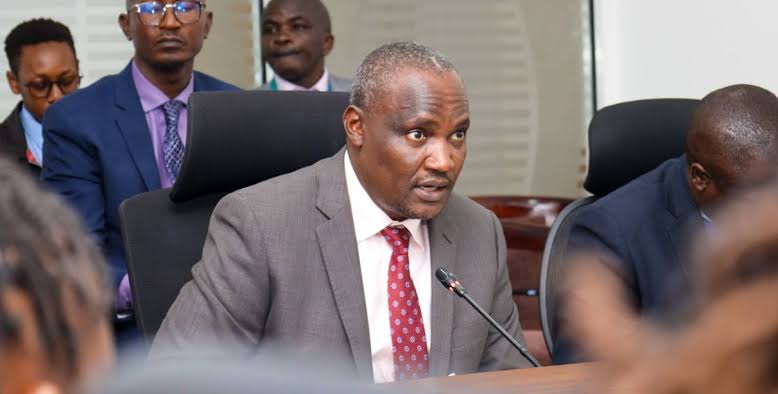The latest decision by Treasury Cabinet Secretary John Mbadi to reduce education funding has sparked anger across the country, especially among educators.
The University Academic Staff Union (UASU) did not hold back, with their Secretary General boldly stating that the money wasted daily in Kenya could fully support the education sector.
This was not just a passing comment. It was a clear accusation aimed directly at the heart of government mismanagement, and Mbadi, as the face of the Treasury, is now under heavy scrutiny.
On July 25, Mbadi confirmed what many feared, the government could no longer sustain free education.
Capitation for secondary school students was slashed from KSh 22,244 to KSh 16,900, a decision that now threatens to push more children out of school.
At the same time, Mbadi proposed drastic changes to public universities. These include laying off staff, shutting down satellite campuses, and outsourcing certain services.
These proposals, framed as solutions to a financial crisis, have instead raised more questions about where public money actually goes.
Critics argue that this isn’t about a lack of money but about where the money is being channelled.
The statement by UASU was clear there is money in Kenya, but it’s being wasted. The daily wastage in the form of unnecessary expenditures, inflated tenders, and payments to ghost schools is where the problem lies.
It’s hard for anyone to believe that a government which can increase State House spending by billions cannot find enough money to keep children in school.
The Council of Governors also weighed in, condemning Mbadi’s decision and warning that it risks destroying the futures of vulnerable children. They pointed out that education is not a luxury it is a necessity and the only equaliser in society.
Slashing funds while allowing other wasteful expenditures to continue unchecked is not just careless, it is dangerous.
Even as the government claims financial strain, universities are collapsing under pending bills and staff are unpaid.
UASU is threatening a nationwide strike unless their CBA is honoured, and that strike will only hurt students further. What angers many people is the hypocrisy.
Mbadi’s Treasury has claimed that education is too expensive to maintain, yet billions are lost every year through corruption and poor budgeting. If money can be found for other non-essential sectors, why not education?
University lecturers are still waiting for the remaining KSh 5.4 billion owed to them, and primary and secondary school students now risk being sent home for fees their parents can’t afford.
Mbadi’s strategy, presented as economic realism, is increasingly being seen as a failure of leadership. It ignores the long-term consequences of underfunding education higher dropout rates, more inequality, and a weaker workforce in the future.
His critics aren’t just calling for more money, they are calling for better priorities. They want a government that values its children more than inflated bureaucracies and luxury budgets.
The way things stand, Mbadi’s policies are hurting education rather than fixing anything. The UASU statement may have sounded harsh, but it reflects a deeper truth. Kenya’s problem is not a lack of resources it’s the lack of responsible leadership to use those resources well. If that doesn’t change, the country risks raising a generation that will forever pay for today’s poor decisions.





















Add Comment